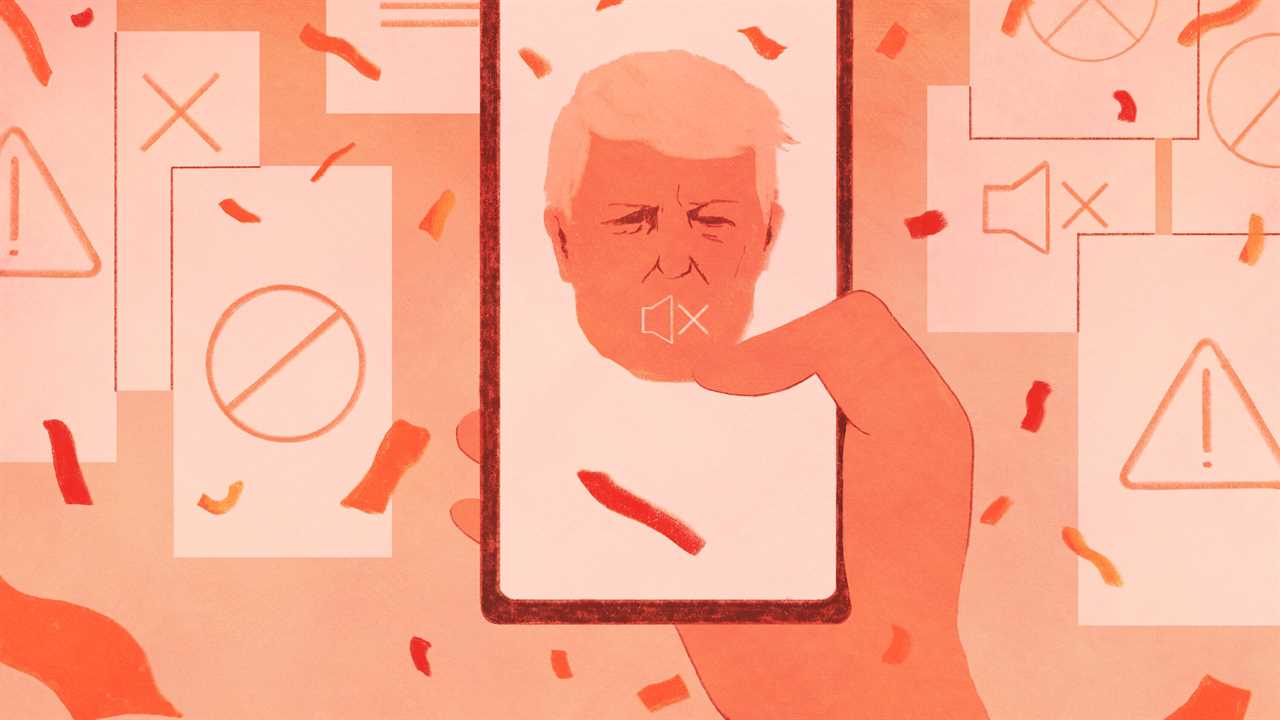
After Twitter and Facebook kicked President Trump off their platforms, and his supporters began comparing his social media muzzling to Chinese censorship, the president won support from an unexpected source: China.
“Legally he’s still the president. This is a coup,” said one comment, which included an expletive, that was liked 21,000 times on Weibo, the Chinese social media platform.
“A country as big as the United States can’t tolerate Trump’s mouth,” another popular comment said. “U.S. democracy has died.”
The comments were solicited by Guancha.com, a nationalistic news site, which created the hashtag #BigUSappsunitedtosilenceTrump# on Weibo. They were echoed by Global Times, a tabloid controlled by the Communist Party.
Mr. Trump “lost his right as an ordinary American citizen,” it wrote in an editorial. “This, of course, goes against the freedom of speech the U.S. political elites have been advocating.”
Mr. Trump’s expulsion from American social media for spurring the violent crowd at the Capitol last week has consumed the Chinese internet, one of the most harshly censored forums on earth. Overwhelmingly, people who face prison for what they write are condemning what they regard as censorship elsewhere.
Much of the condemnation is being driven by China’s propaganda arms. By highlighting the decisions by Twitter and Facebook, they believe they are reinforcing their message to the Chinese people that nobody in the world truly enjoys freedom of speech. That gives the party greater moral authority to crack down on Chinese speech.
“Some people may believe Twitter’s decision to suspend the account of the U.S. president is a sign of democracy,” Hu Xijin, editor of the Global Times, wrote in an opinion piece with the headline “Twitter’s suspension of Trump’s account shows freedom of speech has boundaries in every society.”
It would be tough for the United States to come back and play the role of “the beacon of democracy,” Mr. Hu added in a Weibo post.
Many Chinese online users bought the official line. Nearly two-thirds of the roughly 2,700 participants in one Chinese online poll voted that Twitter shouldn’t have shut down Mr. Trump’s account. The poll’s sponsor was a newspaper owned by the Xinhua News Agency, the Chinese government’s official mouthpiece.
“I just learned in the past few days that the U.S. social media platforms frequently delete posts and suspend accounts too,” wrote a verified Weibo account called “Su Jiande.” “I lost the last hint of respect for the country.”
The user thanked Weibo for allowing users to say whatever they want in pursuit of truth. (I read through the user’s Weibo timeline and found no hint of sarcasm.) Many Weibo users urged Mr. Trump to open a Weibo account.
“This is not the U.S. as we know it,” commented a Weibo user named Xiangbanzhang. “This is Saddam’s Iraq and Gaddafi’s Libya.”
Trump defenders compare the president’s ouster from social media to China-style censorship. “This is not China, this is United States of America, and we are a free country,” Sarah Huckabee Sanders, Mr. Trump’s former press secretary, wrote on Twitter.
Chinese censorship doesn’t work that way. In China, speech about top leaders is closely monitored and harshly censored. The people who run Facebook and Twitter have the First Amendment right to choose what can and can’t go on their platforms.
The Chinese government requires news websites to dedicate their top two daily items to Xi Jinping, China’s paramount leader. On Tuesday, for example, online outlets extolled a speech Mr. Xi gave at a party seminar, while another piece explained the classical literary allusions used in an article under his byline in a Communist Party magazine.
The government has strict rules regarding which social media accounts and websites can post articles and photos of leaders like Mr. Xi. Young censors spend much of their workdays blocking and deleting links that contain photos of the leaders, even if the content supports the government. In other words, ordinary Chinese don’t even have the right to post photos of Mr. Xi, much less criticize him.
Those who dare to criticize him face severe punishment. Ren Zhiqiang, a retired businessman and an influential social media personality, was silenced on Chinese online platforms in early 2016 after he criticized Mr. Xi’s directives that the Chinese news media should serve the party. He was sentenced to 18 years in prison last year after writing an essay that was critical of Mr. Xi’s response to the coronavirus outbreak.
Chinese internet companies conduct their own censorship, but they do so out of fear of what Beijing officials might do to them. Last February, ifeng.com, a news portal, was punished for running original content about the coronavirus outbreak. Under the Chinese regulations, these websites can’t produce original news content.
According to the national internet regulator, websites and regulators in December processed more than 13 million items deemed to be illegal and unhealthy, an 8 percent increase from a year earlier. Among them, six million were processed by Weibo.
For those reasons, many Chinese are dumbfounded by the idea that private companies such as Twitter and Facebook have the power to reject a sitting American president.






